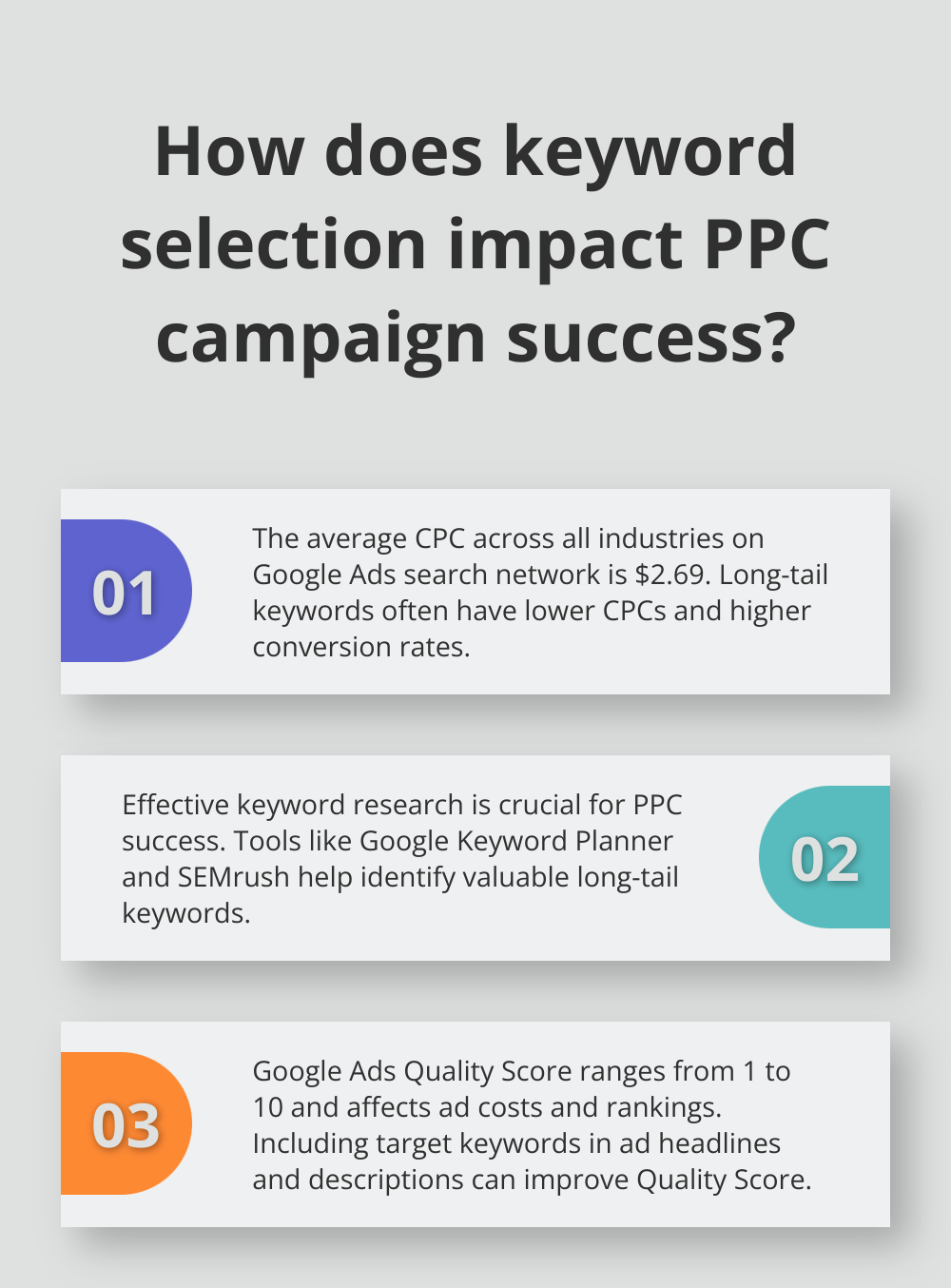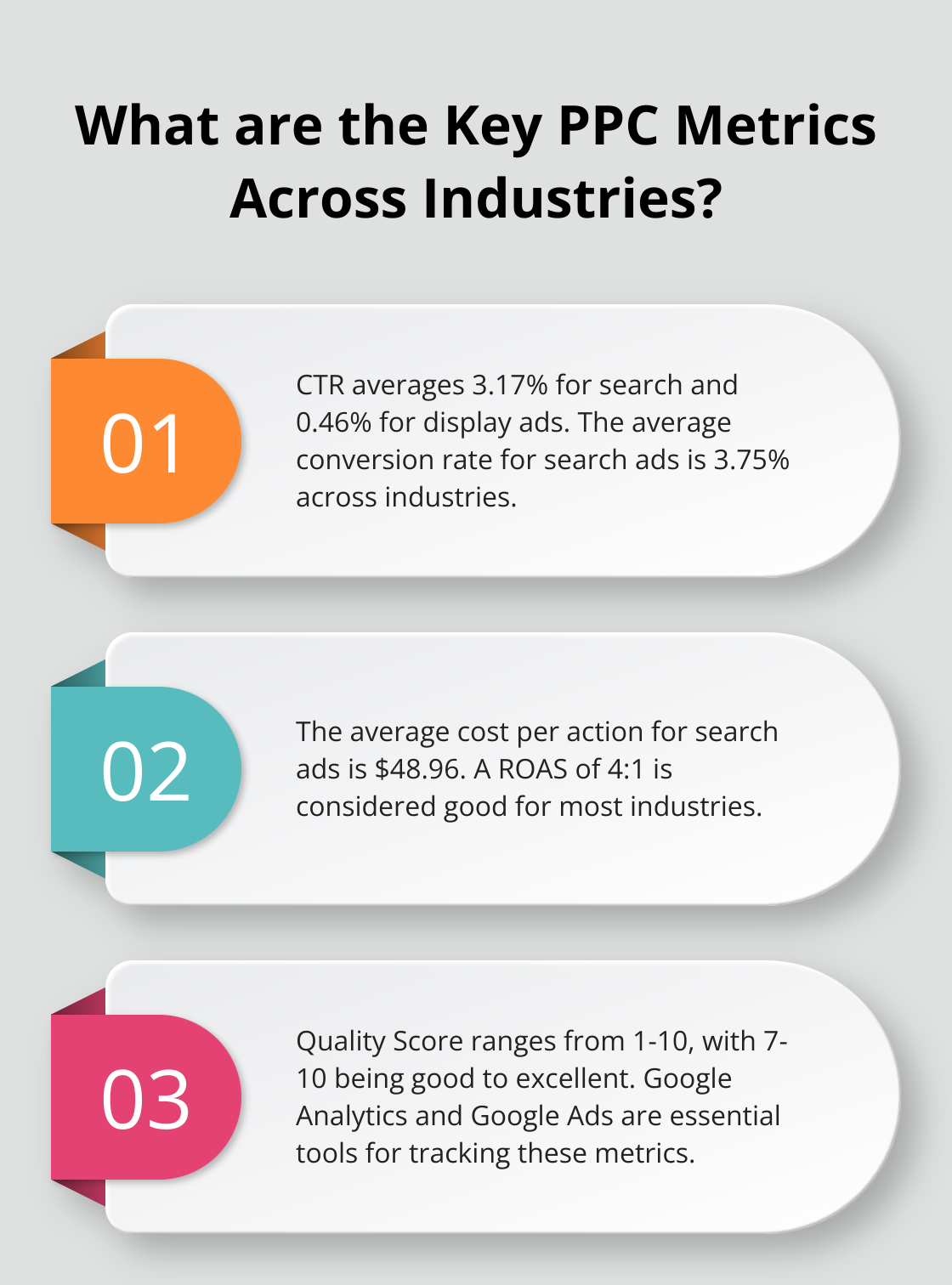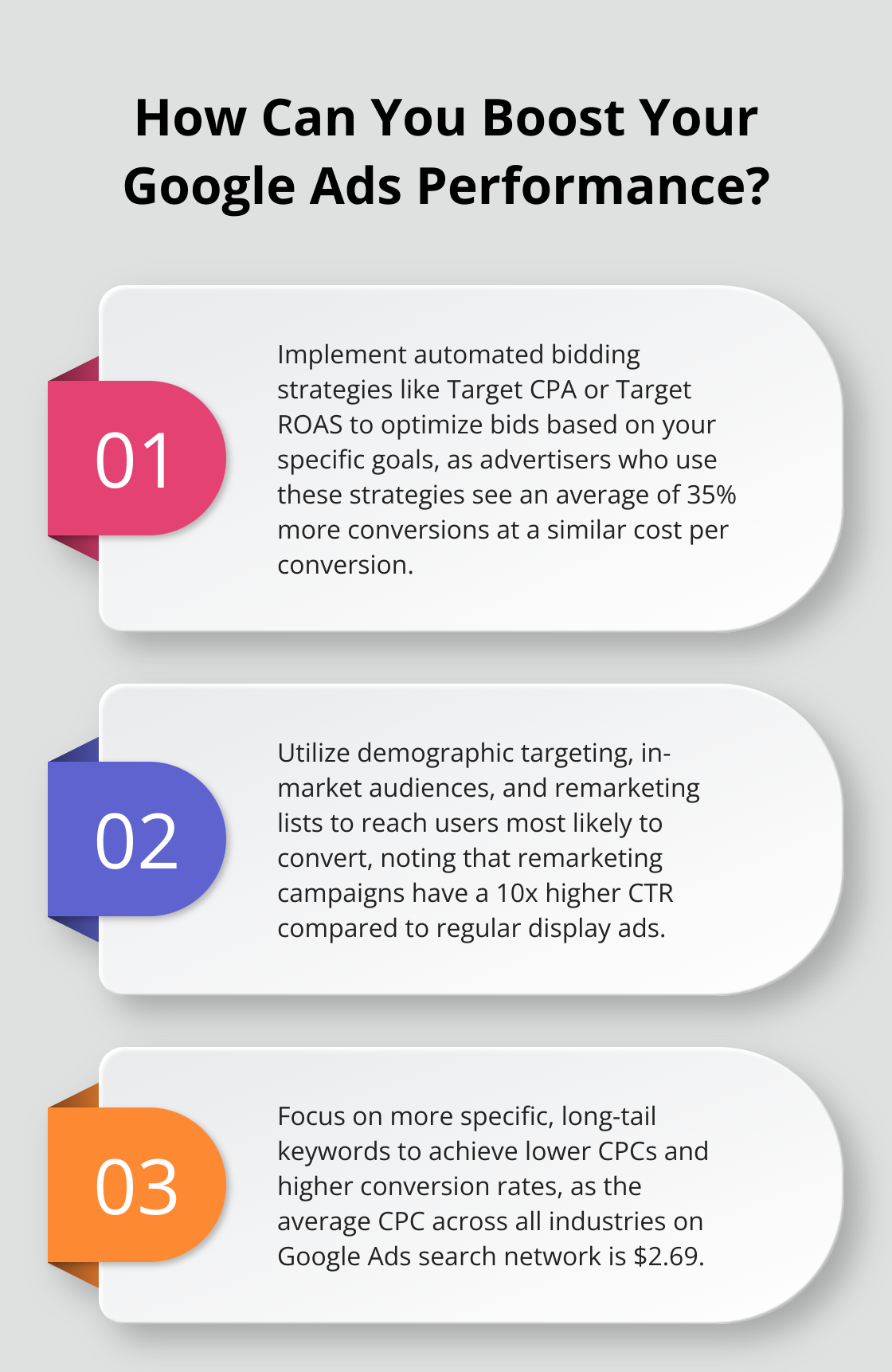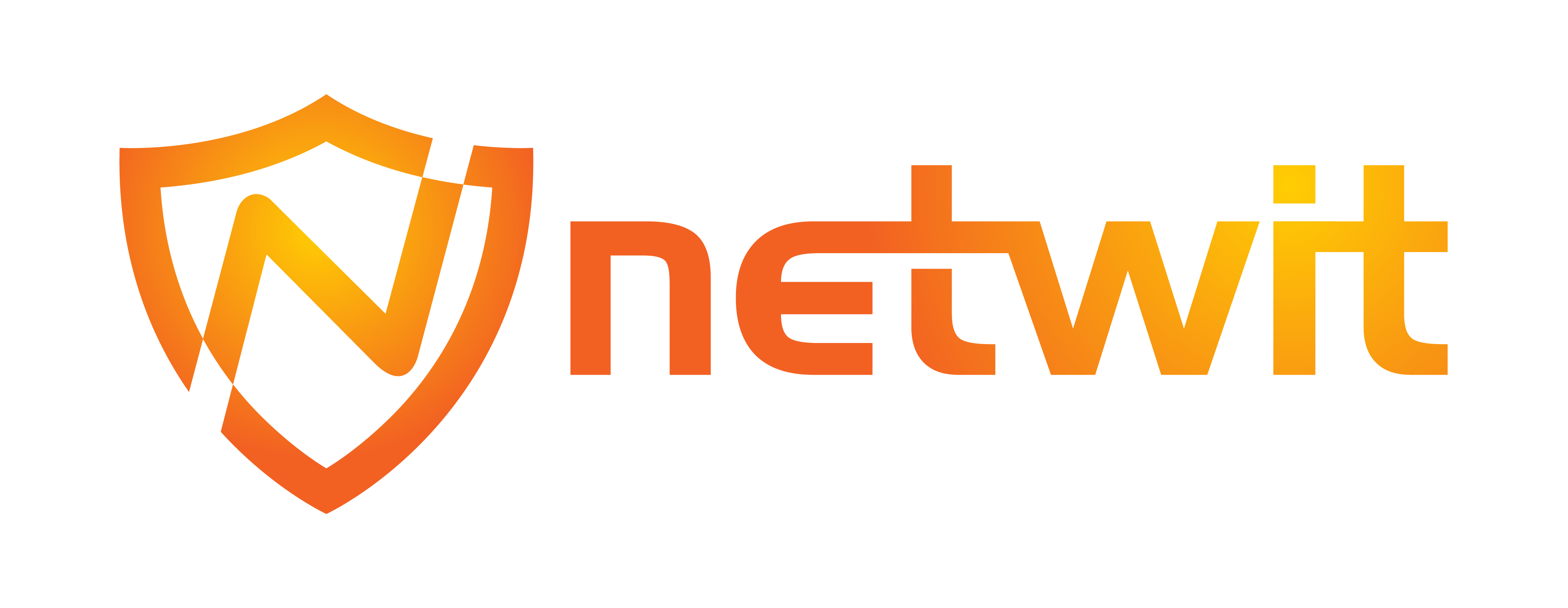Pay-per-click (PPC) advertising is a powerful tool in digital marketing, but its true potential lies in optimization. At Netwit Solutions Inc., we’ve seen firsthand how fine-tuning PPC campaigns can dramatically improve results.
From Amazon PPC campaign optimization to Google Ads, mastering PPC optimization is essential for maximizing your return on investment. This post will guide you through the key strategies and metrics that can transform your PPC performance.
What is PPC Optimization?
Definition and Scope of PPC Optimization
PPC optimization refers to the process of refining and improving pay-per-click advertising campaigns to achieve better results and higher return on investment. PPC advertising involves placing ads on search engines or other platforms and paying only when users click on those ads. The real power of PPC lies in its optimization, which can significantly enhance campaign performance.
The Role of PPC in Digital Marketing
PPC has established itself as a cornerstone of digital marketing strategies for businesses across all industries. Advertisers are projected to spend $190.5 billion on search advertising globally in 2024. This statistic underscores the growing importance of PPC in the digital marketing landscape.
Key Components of Effective PPC Campaigns
Successful PPC campaigns consist of several interconnected elements:
- Carefully selected keywords
- Compelling ad copy
- Targeted landing pages
- Strategic bidding
Each component plays a vital role in determining the effectiveness of a campaign.
Optimization Goals for PPC Campaigns
The primary goal of PPC optimization is to maximize the return on ad spend (ROAS). This involves improving various metrics such as:
-
Click-through rates (CTR)
-
Conversion rates
-
Cost per acquisition (CPA)
A survey by Hanapin Marketing revealed that 79% of marketers say PPC is hugely beneficial for their business, indicating the potential impact of well-optimized campaigns.
The Impact of Data-Driven Strategies
Data-driven strategies form the backbone of effective PPC optimization. By analyzing performance metrics (such as click-through rates and conversion rates), advertisers can make informed decisions to improve their campaigns. This approach allows for continuous refinement and adaptation to changing market conditions, ensuring that PPC campaigns remain effective over time.

As we move forward, we’ll explore the specific strategies that can take your PPC campaigns to new heights of performance and efficiency.
How to Supercharge Your PPC Campaigns
Master the Art of Keyword Selection
Effective keyword research forms the foundation of any successful PPC campaign. Identify high-intent keywords that align with your products or services. Tools like Google Keyword Planner or SEMrush help uncover valuable long-tail keywords with lower competition and cost-per-click (CPC). The average CPC across all industries on Google Ads search network is $2.69. Focus on more specific, long-tail keywords to achieve lower CPCs and higher conversion rates.
Craft Compelling Ad Copy and Landing Pages
Your ad copy must be concise, relevant, and persuasive. Include your target keyword in the headline and description to improve quality score and ad relevance. Google Ads Quality Score ranges from 1 to 10 and affects ad costs and rankings. Factors include ad click-through rate, keyword relevance, and landing page experience.

The landing page experience is equally important. Match your landing page content to the ad’s promise and provide a clear call-to-action (CTA). Using a single CTA on landing pages can increase conversions by up to 266%.
Optimize Bidding and Budget Allocation
Effective bid management maximizes your ROI. Implement automated bidding strategies like Target CPA or Target ROAS to optimize bids based on your specific goals. Advertisers who use automated bidding strategies see an average of 35% more conversions at a similar cost per conversion.
Allocate your budget wisely across campaigns and ad groups based on performance data. Focus on high-performing keywords and campaigns, but don’t neglect testing new opportunities. A good rule of thumb allocates 70-80% of your budget to proven performers and 20-30% to testing new strategies.
Refine Your Audience Targeting
Precise audience targeting improves your campaign performance significantly. Utilize demographic targeting, in-market audiences, and remarketing lists to reach users most likely to convert. Remarketing campaigns have a 10x higher CTR compared to regular display ads.
These strategies form the core of effective PPC optimization. However, the real power lies in how you measure and interpret the results of your efforts. Let’s explore the key metrics and tools that will help you gauge the success of your PPC campaigns.
How to Measure PPC Success
Key Performance Indicators (KPIs)
Tracking the right metrics is essential for PPC campaign optimization. We focus on KPIs that directly impact your bottom line. Let’s explore the most important metrics and how to interpret them for better decision-making.
Click-Through Rate (CTR)
CTR measures the percentage of people who click on your ad after seeing it. A high CTR indicates that your ad is relevant and appealing to your target audience. The average CTR across all industries on Google Ads is 3.17% for search and 0.46% for display. If your CTR falls below these benchmarks, revisit your ad copy and targeting.
Conversion Rate
Your conversion rate shows the percentage of clicks that result in desired actions (such as purchases or sign-ups). The average conversion rate across industries is 3.75% for search ads. A low conversion rate might indicate issues with your landing page or a mismatch between your ad and the offer. Consider A/B testing different landing page elements to improve this metric.
Cost Per Conversion
This metric reveals how much you spend to acquire each customer. Calculate it by dividing your total ad spend by the number of conversions. The average cost per action across industries is $48.96 for search ads. If your cost per conversion is higher, look for ways to improve your targeting or reduce your bid amounts without sacrificing quality traffic.
Return on Ad Spend (ROAS)
ROAS measures the revenue generated for every dollar spent on advertising. It is calculated as a ratio demonstrating revenue generated off each advertising dollar spent for a specific campaign. A ROAS of 4:1 ($4 in revenue for every $1 spent) is considered good for most industries. If your ROAS is lower, focus on improving your targeting, ad relevance, and landing page experience to boost conversions without increasing spend.
Quality Score
Google’s Quality Score affects your ad rank and cost per click. It’s based on your expected CTR, ad relevance, and landing page experience. A score of 7-10 is considered good to excellent. Improve your Quality Score by ensuring your keywords, ad copy, and landing pages are closely aligned and relevant to user intent.
Tools for Effective Tracking
To track these metrics effectively, use tools like Google Analytics and Google Ads. These platforms provide in-depth data on your campaign performance. Set up conversion tracking to measure specific actions on your website, and use the Search Terms report to identify new keyword opportunities or negative keywords to exclude.

Data interpretation is key to making informed decisions. Look for trends over time rather than focusing on day-to-day fluctuations. Review your campaigns regularly and make incremental changes based on the data. Consistent analysis and optimization based on these metrics will improve your PPC performance and maximize your return on investment.
Final Thoughts
PPC optimization is a necessity for businesses aiming to thrive in the digital landscape. Fine-tuning campaigns improves return on investment, reaches target audiences more effectively, and keeps companies ahead of the competition. The long-term benefits include increased brand visibility, higher conversion rates, and more efficient use of marketing budgets.

We at Netwit Solutions Inc. understand the intricacies of PPC optimization, including Amazon PPC campaign optimization. Our team of experts leverages data-driven strategies to enhance campaigns across various platforms. We analyze key performance indicators, implement advanced targeting techniques, and continuously refine ads to deliver maximum impact.
Partnering with us gives you access to cutting-edge tools and industry insights that can transform your PPC performance. We optimize campaigns for success, helping you achieve exceptional growth and turn leads into loyal customers. Visit our website to learn how we can guide you towards your digital marketing goals.

